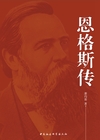It is so, on the Calvinistic theory. According to that, the one great offence of man is self-will. All the good of which humanity is capable is comprised in obedience. You have no choice; thus you must do, and no otherwise: "whatever is not a duty, is a sin." Human nature being radically corrupt, there is no redemption for any one until human nature is killed within him. To one holding this theory of life, crushing out any of the human faculties, capacities, and susceptibilities, is no evil: man needs no capacity, but that of surrendering himself to the will of God: and if he uses any of his faculties for any other purpose but to do that supposed will more effectually, he is better without them. This is the theory of Calvinism; and it is held, in a mitigated form, by many who do not consider themselves Calvinists; the mitigation consisting in giving a less ascetic interpretation to the alleged will of God; asserting it to be his will that mankind should gratify some of their inclinations;of course not in the manner they themselves prefer, but in the way of obedience, that is, in a way prescribed to them by authority;and, therefore, by the necessary condition of the case, the same for all.
In some such insidious form there is at present a strong tendency to this narrow theory of life, and to the pinched and hidebound type of human character which it patronises. Many persons, no doubt, sincerely think that human beings thus cramped and dwarfed are as their Maker designed them to be; just as many have thought that trees are a much finer thing when clipped into pollards, or cut out into figures of animals, than as nature made them. But if it be any part of religion to believe that man was made by a good Being, it is more consistent with that faith to believe that this Being gave all human faculties that they might be cultivated and unfolded, not rooted out and consumed, and that he takes delight in every nearer approach made by his creatures to the ideal conception embodied in them, every increase in any of their capabilities of comprehension, of action, or of enjoyment. There is a different type of human excellence from the Calvinistic: a conception of humanity as having its nature bestowed on it for other purposes than merely to be abnegated. "Pagan self-assertion" is one of the elements of human worth, as well as "Christian self-denial."* There is a Greek ideal of self-development, which the Platonic and Christian ideal of self-government blends with, but does not supersede. It may be better to be a John Knox than an Alcibiades, but it is better to be a Pericles than either; nor would a Pericles, if we had one in these days, be without anything good which belonged to John Knox.
* Sterling's Essays.
It is not by wearing down into uniformity all that is individual in themselves, but by cultivating it, and calling it forth, within the limits imposed by the rights and interests of others, that human beings become a noble and beautiful object of contemplation; and as the works partake the character of those who do them, by the same process human life also becomes rich, diversified, and animating, furnishing more abundant aliment to high thoughts and elevating feelings, and strengthening the tie which binds every individual to the race, by making the race infinitely better worth belonging to.
In proportion to the development of his individuality, each person becomes more valuable to himself, and is therefore capable of being more valuable to others. There is a greater fulness of life about his own existence, and when there is more life in the units there is more in the mass which is composed of them. As much compression as is necessary to prevent the stronger specimens of human nature from encroaching on the rights of others cannot be dispensed with; but for this there is ample compensation even in the point of view of human development. The means of development which the individual loses by being prevented from gratifying his inclinations to the injury of others, are chiefly obtained at the expense of the development of other people. And even to himself there is a full equivalent in the better development of the social part of his nature, rendered possible by the restraint put upon the selfish part. To be held to rigid rules of justice for the sake of others, develops the feelings and capacities which have the good of others for their object. But to be restrained in things not affecting their good, by their mere displeasure, develops nothing valuable, except such force of character as may unfold itself in resisting the restraint. If acquiesced in, it dulls and blunts the whole nature. To give any fair play to the nature of each, it is essential that different persons should be allowed to lead different lives. In proportion as this latitude has been exercised in any age, has that age been noteworthy to posterity. Even despotism does not produce its worst effects, so long as individuality exists under it; and whatever crushes individuality is despotism, by whatever name it may be called, and whether it professes to be enforcing the will of God or the injunctions of men.
Having said that the individuality is the same thing with development, and that it is only the cultivation of individuality which produces, or can produce, well-developed human beings, I might here close the argument: for what more or better can be said of any condition of human affairs than that it brings human beings themselves nearer to the best thing they can be? or what worse can be said of any obstruction to good than that it prevents this? Doubtless, however, these considerations will not suffice to convince those who most need convincing; and it is necessary further to show, that these developed human beings are of some use to the undeveloped- to point out to those who do not desire liberty, and would not avail themselves of it, that they may be in some intelligible manner rewarded for allowing other people to make use of it without hindrance.















